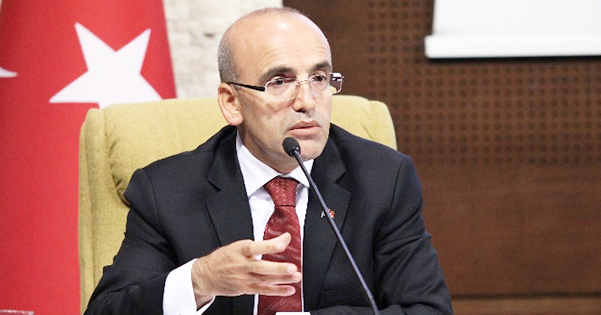Having dropped dramatically since last year before recording a monthly surplus two times in a row in June and July, Turkey’s current account balance has also posted a surplus in August and led to the annualized current account surplus widening to a record in the month.
The balance posted a surplus of $2.6 billion in the month, the Central Bank of the Republic of Turkey (CBRT) announced. The increase brought the 12-month rolling surplus to $5.1 billion, the highest surplus ever. The surplus was up $554 million year-on-year, the bank said in a statement. The balance posted a surplus of $1.01 billion in the January-August period, the bank said. “We will protect our gains with export and value-added production priority policies and ensure that our resources remain in our country,” was the first evaluation of the data by Treasury and Finance Minister Berat Albayrak, who underscored that the successful performance in the current account balance continues.
“We have recorded a surplus of $5.1 billion in August with another record, after the record in July,” Albayrak said over his social media account.
The central bank said the development in the current account is mainly attributable to an $848 million increase in the services item recording net inflow of $5.2 billion, as well as a $73 million increase in secondary income surplus to $100 million.
A survey showed economists’ current account surplus estimates range for August stood at $2.76 billion. A group of 14 economists’ surplus estimated the end-2019 current account balance to show a deficit of $700 million. The median of 10 estimates in a Bloomberg survey was for a monthly surplus of $2.85 billion.
Gold and energy excluded current account surplus was $5.7 billion, rising $1.1 billion from August 2018. Travel items under services saw a net inflow of $4.1 billion in the month, up $737 million year-on-year.
The country’s new economy program unveiled last month expects a current-account-surplus-to-GDP ratio of 0.1% for 2019. It forecasts the current account to post a deficit of 1.2% next year and 0.8% in 2021 before reaching 0% in 2022.
In 2010 and 2011, when the Turkish economy was seeing a high growth, the annualized current account deficit had increased gradually and reached its historic peak in October 2011 with $76.1 billion. It went on to fall below $50 billion in November 2012 with the measures taken by the economic administration.
The annualized deficit climbed to $57.9 billion in May 2018 before it kicked off a dramatic decline along with the rebalancing period in the Turkish economy that started after Treasury and Finance Minister Albayrak announced the new economic program (NEP) in September last year. Measures taken in this scope led to narrowing in the foreign trade deficit, while a high increase was observed in the rate of exports meeting imports.
The annualized trade deficit gradually declined for the 12 months between June 2018 and May 2019 from $57.9 billion down to just $1.2 billion. The annualized balance has since then been recording surplus. It posted a surplus of $1.2 billion, $4.5 billion and $5.1 billion in June, July and August, respectively
Thus, the $5.1 billion surplus in August is the highest-ever annualized current account surplus considering the data released by the CBRT and that goes back to 1991.
In his evaluation of the data, AA finance analyst and economist Haluk Bürümcekçi told AA that foreign trade data for September pointed to a higher foreign deficit compared to last year, which, he said, makes them think that an end in the rise in the current account surplus is approaching.
Besides improvement in the headline data, Bürümcekçi said the non-energy current balance, which is followed in terms of the basic tendency of the current balance, posted a surplus of $41.2 billion, while the core current balance recorded a surplus of $46.8 billion.
Bürümcekçi emphasized that the surplus in the current account balance has reached its strongest level in history as an absolute value and said it may remain below the 2% of the GDP level achieved in the 2001 crisis.














